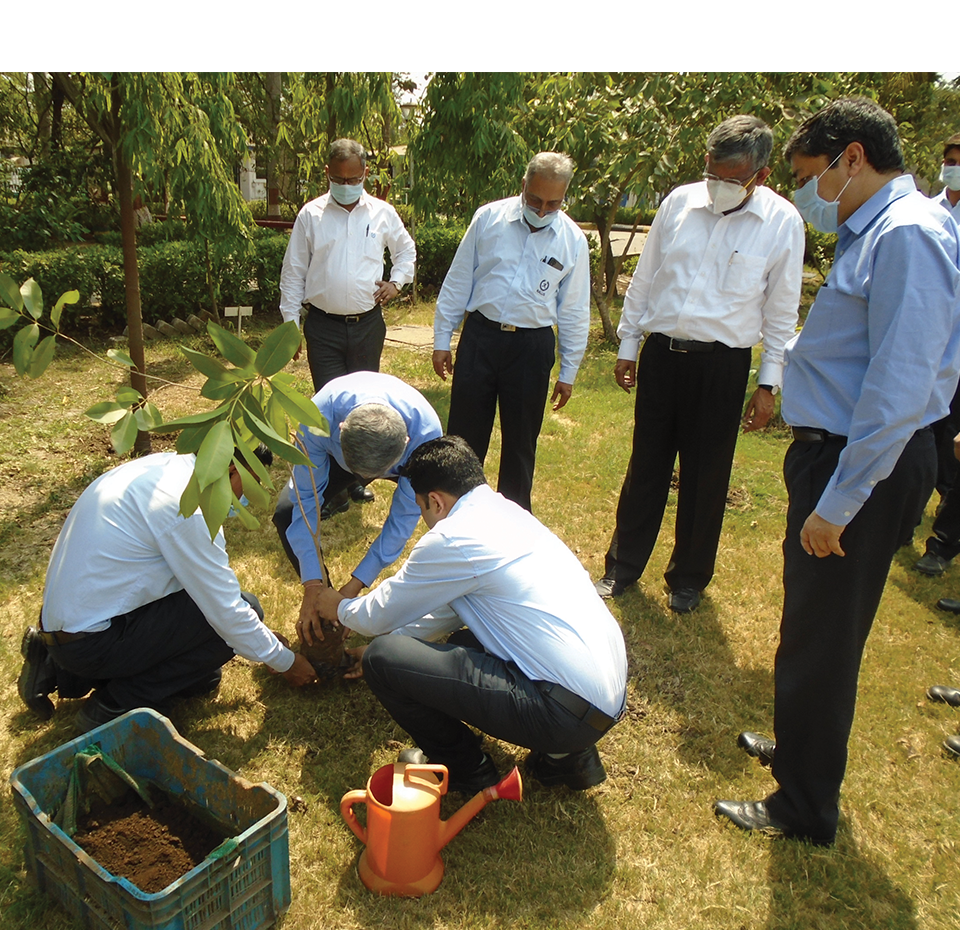
Sapling plantation at Ankleshwar
We are leading the way in sustainability practices and have implemented a range of measures to make our business operations more sustainable. We have set ambitious targets for further improving sustainability performance in the future.
Treatment of effluents generated
Treated water recycled
Total waste generated
Waste disposed by nature of disposal method
Waste disposed intensity
Initiated several programmes of converting waste into commercial products e.g. Spent Acid to Aluminium Sulphate, Sodium Sulphate consumed in co-processing instead of land filling, waste potassium sulphate purified to potassium sulphate, recovery of Br2 from Sodium Bromide Solution, Polyaluminium Chloride from Waste Alum.
We have a water harvesting facility at Kokkonda plant for Seeds, with a capacity to store approximately 25 KL of water. We have recycled and reused 63,395 KL treated wastewater.
Recharging Groundwater
Inadequate water leads to health problems as groundwater level has drastically declined and villagers have to depend on water tankers for domestic water use. Since we have a strong connection with two major consumers of water, i.e., agriculture and industries, we play a critical role in combating emerging water shortage in India.
The Jal Dhan programme was started with this approach in mind. It is a rainwater conservation programme in Maharashtra with special focus on water-stressed regions which is working on increasing water availability for domestic and agricultural use through watershed interventions. The programme works towards reducing run-off rainwater, increasing the aquifer and constructing water storage and recharge infrastructure.
The Company discusses the water problem with villagers and also the solution to overcome these issues. It motivates them to take ownership of the project by becoming an implementing partner. Through the system of Shramdaan, the villagers contribute a minimum of 10% of the project cost.
As per the topography, various methods are implemented such as land treatment and drainage line treatment, e.g., deepening and de-silting nala, ponds, existing water storage structures, constructing small check-dams, ponds and others. The local authorities and government authorities continue to appreciate the pioneering efforts of the Company. With locals understanding the concept of getting maximum returns with minimum investment, there has been a huge demand for Jal Dhan projects in other villages too.
Achievements of Jal Dhan Project
Jal Dhan Project
Jal Dhan project
We are building a portfolio of eco-friendly and less toxic products. As per our policy, we have discontinued the production of extremely toxic red triangle products, as per the Insecticides Act. Instead, we are focussing on introducing green triangle products (slightly toxic).
We have a 4.4 MW capacity Solar plant at Dahej CZ and 309 KW capacity solar rooftop at Akola. To this, we are adding 1 MW solar power at Dahej CZ and Ankleshwar. Apart from this, we are also implementing 1.1 MW capacity hybrid power at Ankleshwar. We are installing a Hybrid Thermal Solar Panel for air conditioning systems at Ankleshwar on a pilot basis.
In the current year, the Company planted more than 28,000 saplings - Largest in the tribal belt. With this, more than 71 acres of waste and deforested land were converted into afforestation.
Energy used from renewable sources
of Production
Reduction in energy
consumption
Generating thermal energy from biomass
Solar energy utilised
Rooftop solar power panel, Akola
